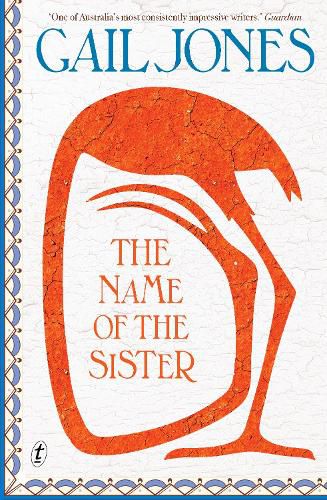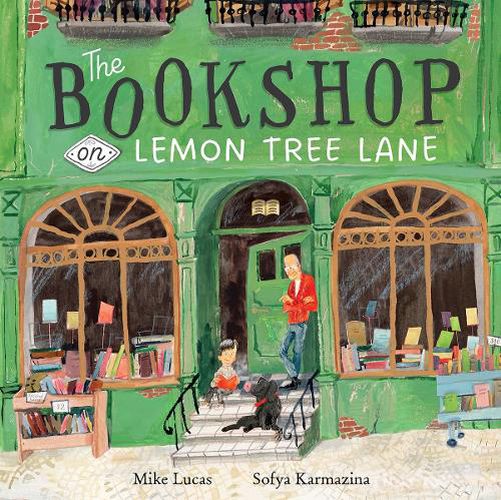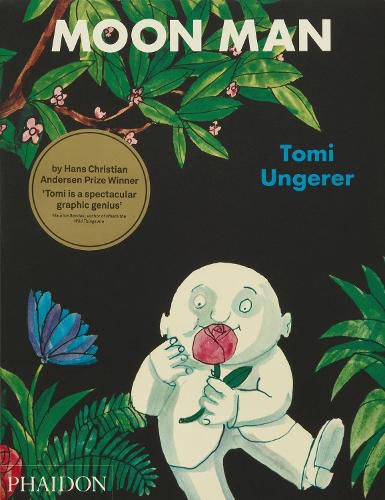Explore our books of the month for June.
Each of the below titles has been read and recommended by our booksellers before being selected as our book of the month for its category.
Fiction Book of the Month
The Name of the Sister
Gail Jones
I’ve read most of Gail Jones’ works. She certainly is one of our most prolific writers and The Name of the Sister is her 11th novel. I’ve loved everything of hers that I’ve read; her books are intelligent, sophisticated, and cosmopolitan. The Name of the Sister has all of those qualities, too, but is more rooted in Australia and stylistically is, I feel, quite different from her earlier works. It has all the suspense and tension of a thriller and reminded me of Charlotte Wood’s The Natural Way of Things.
On a lonely road in the bush outside Broken Hill, an emaciated, terrified woman stumbles into the headlights of a car; she cannot or won’t speak, and has no identifying papers or marks. Sydney-based freelance journalist Angie is intrigued, sensing that there might be an opportunity for a big story. Pictures of the unknown woman, ‘Jane Doe’, are circulated, and the police are inundated with people claiming that Jane is known to them. By coincidence, Angie’s childhood friend, Bev, is the lead officer on the case and leaks information to Angie, including details of people who have come forward about Jane. By default, Angie becomes a contact point for people who have lost loved ones and now view Angie as a possible source of hope. ‘Can you help?’ they ask. ‘I’m only a journalist,’ she replies.
Her growing obsession with Jane highlights the distance between Angie and her husband. When Bev is sent to Broken Hill and suggests Angie follow her, the journalist becomes much more than an objective observer and turns into an active participant in the case, which leads to an uneasy and disturbing resolution. Gail Jones is a great writer and this thrilling, intriguing book will delight her admirers but also garner the attention of those yet to discover her.
Reviewed by Mark Rubbo.
Crime Book of the Month
Melaleuca
Angie Faye Martin
Set in the fictional small country town of Goorungah, Queensland, police officer Renee Taylor has only returned to her hometown to look after her mother before leaving for her new home in Brisbane. But when the body of an Indigenous woman is found brutally murdered by the creek, Renee takes on the task of leading the investigation into the mystery woman’s death. In her search, she finds a web of secrecy that the sleepy town has hidden for decades, including the bizarre connection between the victim and two Aboriginal women who went missing more than 30 years ago.
Crime fiction, I believe – as someone who reads a lot of it regularly – can ironically be an underrated genre. It’s extremely popular for its cosy whodunits or its dark and twisted thrillers full of gory details. However, crime fiction is often the most overlooked genre when it comes to bringing important real-world issues to attention, conveying a crucial message that people don’t expect to see beyond a juicy murder. Angie Faye Martin’s debut explores systemic racism, violence against First Nations women, and the vast difference in rates of domestic violence, abduction, and homicide between Aboriginal and Torres Strait Islander women and non-Indigenous women.
Renee is a complex protagonist who struggles at times with her identity as an Indigenous woman and as a police officer. Her investigations reveal the lack of news coverage or general knowledge about the two missing Aboriginal girls, which we can certainly relate to today. In her author’s note, Martin writes that although the location and characters are entirely fictional, the novel nevertheless ‘provides a window into the lived reality of many Aboriginal people.’ Melaleuca is a masterful debut that calls for justice and change within Australian politics, the judicial system and cultural mindset.
Reviewed by Aurelia Orr.
Nonfiction Book of the Month
The prime minister's potato and other essays
Anne-Marie Condé
In this tender collection of essays, historian and curator Anne-Marie Condé expands her sights towards the less-curated corners of history to explore how the smallest fragments of the past – postcards, commemorative plates, pavements, potatoes – can echo with the weight of history. With a gaze that is both respectful and exacting, Condé searches for meaning not in the grand arcs of battles and statesmen, but in the overlooked and the seemingly ordinary. What results is a quietly stunning meditation on memory, materiality, and the stories we secretly carry.
Condé writes with a skilled combination of intellectual precision and emotional attunement. Though clearly grounded in deep archival knowledge, her prose is animated by an insatiable curiosity and sometimes childlike awe of the unseen. Condé does more than interpret objects – she meets them, and through them, the people whom they once touched. The titular potato becomes not just a novelty but also a portal to deeper questions about what we choose to remember and how we might honour lives that official history often forgets. Condé coaxes human complexity from the faintest traces and invites us to consider our immediate world more carefully, to find connection in allegedly idle things, and to approach the past not only with reverence but also with great affection. Hers is a voice that sees the mystical in the mundane, and the enduring presence of those who came before.
This is not just history. It is storytelling of the highest order: insightful, discerning, and quietly magical.
Reviewed by Clem Larkins.
Young Adult Book of the Month
Lady's Knight
Amie Kaufman & Meagan Spooner
Amie Kaufman and Meagan Spooner – the dynamic duo behind YA series including The Starbound Trilogy and The Unearthed Duology – are back again with a new collaboration, Lady’s Knight. This standalone tale departs from Kaufman and Spooner’s traditional realm of sci-fi and instead ventures into the past, to a medieval land of knights, lords, ladies and blacksmiths. But this is first and foremost a rom-com adventure – forget any notion of historical accuracy and get ready for cheesecake on a stick, cheerleaders and a tavern serving themed cocktails.
Isobelle is a noble lady with social status and an enormous dowry, but whose indifferent guardian has offered her as the prize for the winning knight in The Tournament of Dragonslayers. Gwen is the daughter of a village blacksmith, whose talents for forging and fighting are pointedly ignored by everyone around her. When the two cross paths, they realise that an unexpected partnership might be the key to solving both their problems – Gwen will disguise herself as a knight, win the tournament, prove herself beyond a doubt and save Isobelle from being married off to an unknown brute! With Gwen’s skill and Isobelle’s determination, they can’t possibly lose, right?
As someone who had an adolescent obsession with Tamora Pierce’s Song of the Lioness quartet, any story that involves someone disguising themself as a knight has me on the hook straight away; but Kaufman and Spooner elevate the already delightful premise with charming characters, endless wit, and a swoonworthy queer romance. While this is a fun-filled adventure, it also manages to maintain a lot of nuance in the relationships between characters, and the depiction of the prejudices and injustices that Isobelle and Gwen are trying to fight. I heartily recommend this to any fantasy or rom-com lover – you’ll giggle, sigh, gasp and cheer! For ages 13+.
Reviewed by Bella Mackey.
Kids Book of the Month
Music Camp
Penny Tangey
Penny Tangey, winner of The Readings Children’s Prize 2021 for As Fast As I Can, returns with a new novel perfect for all music lovers. Music Camp follows Miley, who lost her home in a flood the year before the book begins. She is super excited that she has won a scholarship to attend a selective five-day music camp, where she can prove that the recorder should be considered a professional instrument – especially to Juliet. Juliet has music running in her veins: her late father was an esteemed clarinet player and he continues to inspire her every day to become just as great as he was. The inclusion of the recorder in the music camp offends everything Juliet believes in. But with new weather reports threatening the camp with flooding and a cancelled concert, can they find harmony even amid their differences?
Like many who had an Australian education, my only experience with the recorder was in primary school, with different instruments in high school, and ultimately never again thinking about it, despite its rich history in medieval times and classical music. Tangey asks us to dismantle the hierarchy of musical instruments and celebrate each wonderful tune musicians can make.
Music Camp is a fun, uplifting story about music, climate change, and pursuing your dreams. For ages 8+.
Reviewed by Aurelia Orr.
Picture Book of the Month
The Bookshop on Lemon Tree Lane
Mike Lucas, illustrated by Sofya Karmazina
I think Mike Lucas and Sofya Karmazina’s The Bookshop on Lemon Tree Lane might just be my new favourite picture book. With beautiful illustrations and wonderful, rhyming text, I can’t wait to read it at Story Time at Readings Kids! The story follows a young child whose favourite bookshop is about to change – something that they’re not exactly looking forward to. However, after the bookshop’s reopening, they learn that though it won’t ever be quite the same, sometimes, changes aren’t all that bad and the new bookshop can be just as magical and adventure-filled as it was before.
Together, Lucas and Karmazina have struck the perfect balance of text and illustrations, telling a story that is great for anyone needing a reminder that changes can be tough, but also very rewarding – or for anyone in need of an excellent picture book. Suitable for all ages but perfect for kids aged 2–6.
Reviewed by Lili Reus-Smit.
Kids Classic of the Month
Moon Man
Tomi Ungerer
Curious Moon Man catches a shooting star as it is heading to earth one day. On Earth, Moon Man is met with suspicion and hostility from the government and thrown in jail. Luckily, Moon Man’s size changes with the phases of the moon, so he can escape through the cell bars during a thin phase. Moon Man finally enjoys some time on Earth, appreciating nature, then dancing at a wonderful costume party. Sadly, a killjoy calls the cops and Moon Man is back on the run, eventually finding a way to return to his moon home. Despite offering moments of beauty and solidarity, Earth did not prove to be an especially welcoming place.
Moon Man was published in 1966, yet remains a strikingly relevant reflection on our treatment of outsiders. French artist Tomi Ungerer is widely regarded as one of the greatest picture book creators of all time. In addition to books, Ungerer was known for comics, posters and design work, all evident in the thick lines and bold colours of his illustrations. He never thought of his picture books as specifically for children, and the funny, subversive, gently anti-authoritarian Moon Man remains a glorious reading experience for all ages.
Reviewed by Kim Gruschow.









